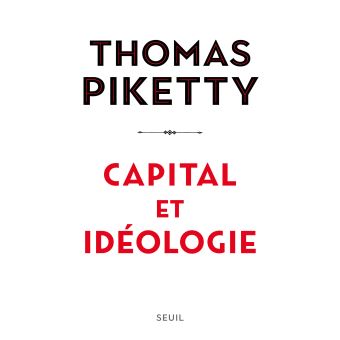

The other justification is the legitimacy of private property: the centre of the book is a critique of how the French Revolution went wrong by elevating property rights over the feudal concept that rights followed from status within the caste system. Each needs the other two, and inequalities in some sense reflect their relative value. One justification, essentially feudalism, assigns the members of society to one of three roles: security, community and production. He focuses on one set of ideas – how a society justifies its prevailing inequality – and offers a reductionist but useful distillation. The Marxists will be attracted by its title, but they won’t like it: from that history Piketty accepts that communism was, and could only be, a disastrous failure. Capital and Ideology is long because it is full of global social history. A corollary that he bravely accepts is that economics has become both too narrow and too imperial – it needs to return to social science and history. Piketty’s central proposition is important and neglected: a society’s ideas – its “ideology” – shape its outcomes.


But in the end, if this becomes the agenda of the left, it will exchange one cul-de-sac for another.

There is much of value here and many of its ideas are insightful. This book by the French economist Thomas Piketty aspires to guide the left during the 21st century and it deserves to be taken seriously. Bruised by Tony Blair’s ethics-light power-is-the-purpose ethos, and Gordon Brown’s megalomaniac command-and-control, it stumbled into the cul-de-sac of Marxism from which it is now escaping. And he will set out his manifesto for how we can build a new participatory form of socialism.Britain’s left needs new ideas. Piketty will lay bare the ideologies that sustained not only the unjust and unequal societies of pre-modern times, but those that are used today to justify the deepening inequality of what he calls our hyper-capitalist system. Such decisions gave rise to slavery, serfdom and colonialism. Piketty will argue that our market economy is not an inevitable feature of human nature, but an historical construct that arose out of countless choices and decisions people have made over time. And on 14th May 2020 he returns to the Intelligence Squared stage to discuss the themes of his new book. Now Piketty is back with an audacious follow-up, Capital and Ideology, in which he urges us to radically reappraise everything we think we know about politics, ideology, and history. Thomas Piketty caused a sensation in early 2014 with his book Capital in the Twenty-First Century, which sparked a global debate about inequality and contributed to a revived wave of interest in socialism across the world.


 0 kommentar(er)
0 kommentar(er)
